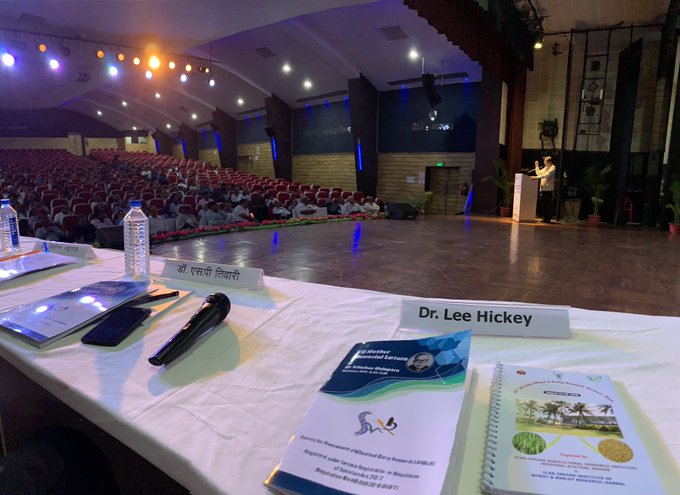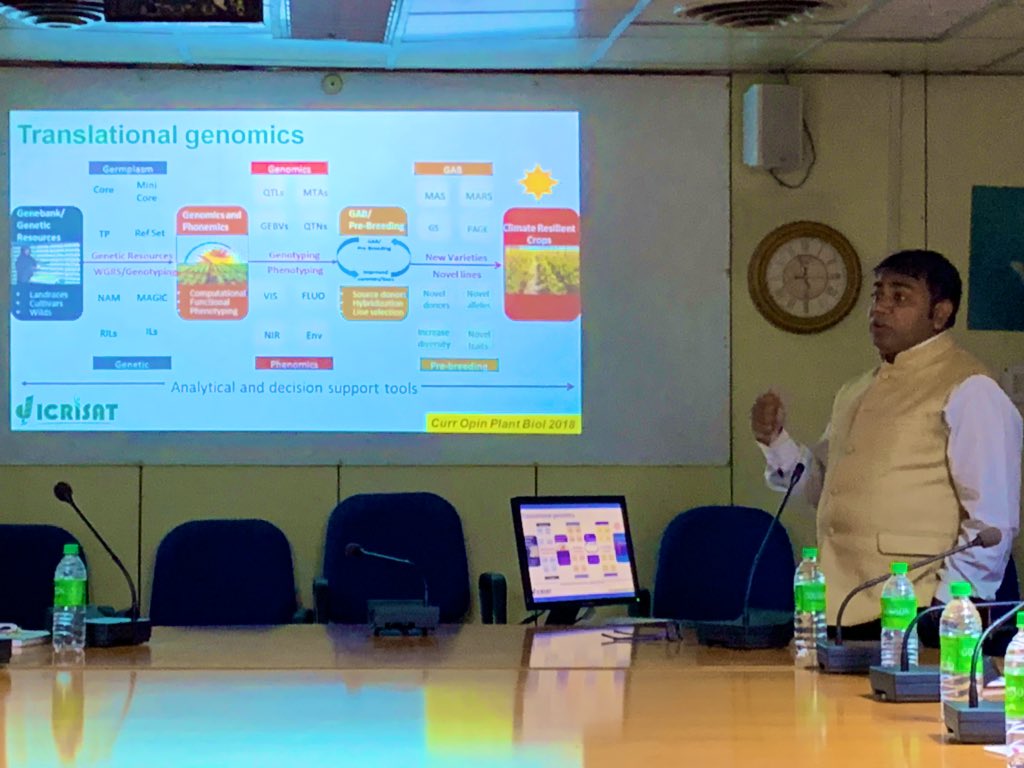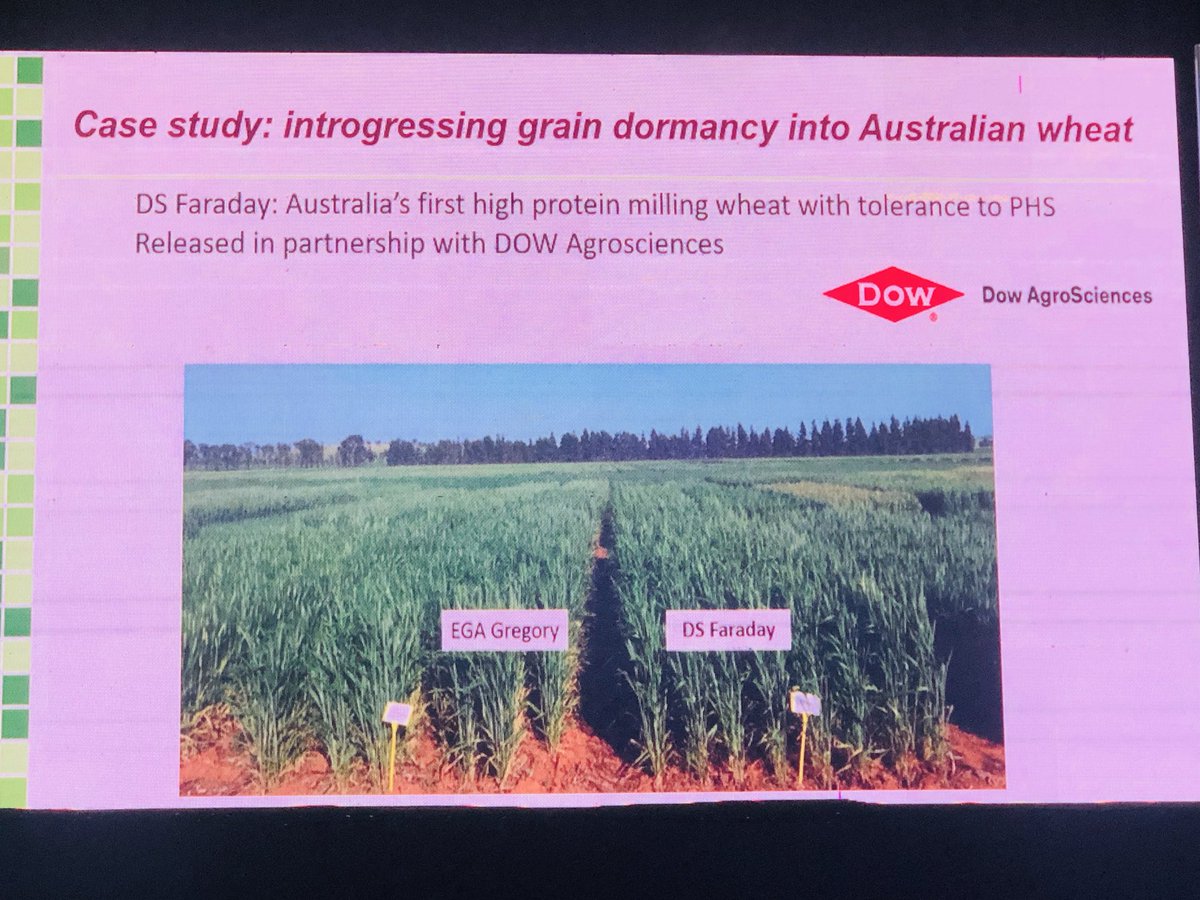 24-26 August 2019. Indore, India. The ICAR-Indian Institute of Wheat and Barley Research, Karnal and IARI Regional Station, Indore organized the 58th All India Wheat and Barley Research Workers' Meet
24-26 August 2019. Indore, India. The ICAR-Indian Institute of Wheat and Barley Research, Karnal and IARI Regional Station, Indore organized the 58th All India Wheat and Barley Research Workers' Meet |
| At the Indian Research Institute of Soybean Research in Indore Dr @rajvarshney gives an overview of translational genomics and how these tools can assist the development of better varieties for farmers in Asia and Africa |
The Indian Institute of Wheat and Barley Research through All India Coordinated Research Project on Wheat and Barley (AICRP) is coordinating multidisciplinary and multilocational testing of varietal, newly developed improved genotypes, crop management and crop protection technologies across the diverse ecosystems for increasing and stabilizing the wheat production.
As a nodal agency for wheat research, ICAR-IIWBR facilitates planning, exchange of experimental material, monitoring the field trials / nurseries, data compilation and documentation. Presently, there are 29 funded centres and more than 100 voluntry centres that are carrying out the planned activities of different production conditions of the five agro-ecological zones.
Mandate
Mandate
 |
| @DrHikov presenting an impressive presentation on speed breeding in brainstorming on #SpeedBreeding corgainzed by Ind Soc Genet Plant Breed, Ind Inst Wheat Barley Res, Ind Agr Res Inst of @icarindia in #Indore #MadhyaPradesh. |
- To evolve and coordinate a multidisciplinary, multilocational applied research and testing programme for wheat and barley improvement at the national level.
- To identify improved wheat and barley varieties combining high yield with superior grain quality, resistance to diseases and insect pests and adaptability over a wide range of cultural practices such as sowing time, fertilizer levels and water management etc.
- To develop wheat and barley production and protection technologies and monitor crop situation.
- To enrich genetic variability at each of the breeding centres by way of supply of diverse germplasm obtained from various exotic sources and developed through indigenous efforts.
- To monitor site the progress of work of all centres cooperating in the AICRP programmes and integrates their activities to the best advantage of the country.
- To collaborate with national and international agencies and to organize scientific training programmes involving national and international agencies.
- To organize breeder seed production programmes and monitor their quality.
- To help in the organization and monitoring of frontline demonstrations and extension education programmes for proper transfer of improved technologies.
- To hold annual wheat workers’ meeting and zonal meetings.

Related:

No comments:
Post a Comment